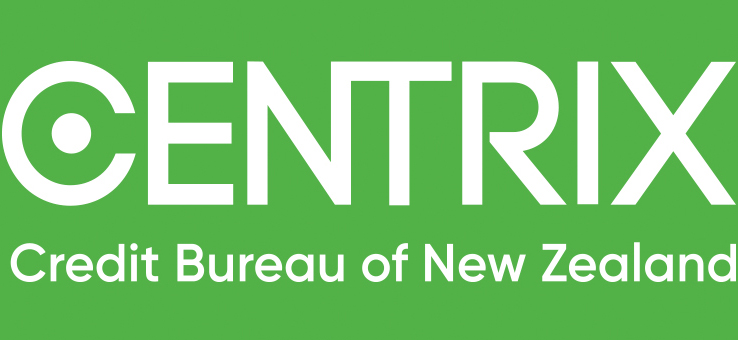Financial jargon is confusing, after all there is so much of it! So, what does it all mean? To help you understand what you are reading in the media and our Centrix Insights we’ve put together a list of our most used credit related terms and what they mean. If you still don’t understand something then please do let us know, it’s likely others don’t understand either.
| AML/CFT
|
Stands for Anti-Money Laundering and Countering Financing of Terrorism. The AML/CFT Act 2009 is a law that requires New Zealand’s banks and lending companies, casinos, virtual assets service providers, accountants, lawyers, conveyancers and high value dealers to find and prevent money laundering and terrorism financing. The law ensures that businesses guard themselves against money laundering and terrorism financing. This helps to make New Zealand a safe place in which to do business. For more information click here. |
| Arrears
|
This refers to money that is owed and overdue. If you or someone misses a bill payment then this is measured as an arrear. |
| BNPL
|
Stands for Buy Now Pay Later. This is a common financial product allowing consumers to make a purchase now and pay for that purchase at a future date, often interest-free if you pay for it on time. BNPL is similar to a personal loan in that your payments are split up into equal amounts over time. |
| Credit bureau | A company responsible for collecting credit information for an individual or business from organisations like lending and finance companies, utility providers (for example power companies), and telcos. This information is then turned into a credit report including a credit score for that person or business. |
| Credit check | This is when a business or person requests a credit report on another business or person. The credit check helps them to make a decision about whether to loan money, or supply products and services on account or by invoice, to that person or business. |
| Consumer credit | Consumer credit is a term used to describe money that is loaned to a person for the purchase of goods or services. Personal loans, mortgages, overdrafts and credit cards are all examples of consumer credit. |
| Credit score / Credit rating
|
This is a number between 1- 1000 that shows the creditworthiness of a person or business. The score shows how reliable they are at repaying money borrowed and is based on a detailed check of their repayments to lenders, such as banks, utility companies and telcos, in the past. The higher the score, the more likely a person or business is to repay their debts on time. |
| Credit report / Credit file
|
A credit report is a summary of a person or business’s loans and repayments, i.e., whether they have paid their bills, on time, or have a history of overdue payments. Lenders will look at a credit report to help with the decision-making process of whether to loan money or provide goods and services on credit, and if so, on what terms. A credit score, defined above, is always in the credit report. |
| Comprehensive Credit Reporting (CCR)
|
This is a more detailed credit report that is available to registered banks, lending companies and telcos and utilities. CCR gives a more in-depth view of a person or business’s credit history and payment behaviour. It provides a level of detail that assists banks and lending providers to comply with regulatory requirements and make faster, more reliable and responsible decisions. |
| Creditworthiness | This is a measure of how suitable a person or business is to receive credit, lending or finance based on how good they have been paying their bills and money back in the past. |
| CCCFA
|
This stands for Credit Contracts and Consumer Finance Act. This is a law that protects New Zealanders when they borrow money. Put simply it protects people from borrowing too much and risking not being able to pay it back. Find out more about the CCCFA here. |
| Credit demand | This is a term used to describe the population’s appetite for borrowing money. Highs, lows, drops and rises in credit demand are determined by wider economic factors. |
| Credit default | A credit default is a serious arrears position, often when you have been referred to a debt collection agency and they have loaded a formal credit default against your name. A credit default can have a strong negative impact on your credit score. |
| Credit enquiry | When you apply for lending or credit this is listed on your credit report as a credit enquiry. The total number of credit enquiries on a person or business’s credit report is of interest to banks and lending companies when deciding to lend. Too many credit enquiries can have a negative impact on a credit score – which could make a lender decide not to lend money or to lend less of it on stricter repayment terms. |
| Financial hardship | When a person or business cannot meet their financial obligations for a period of time, they can be reported to a credit bureau as in financial hardship. Financial hardship assistance is available from many banks and lenders. |
| Liquidation | When a business can no longer repay their debt they go into liquidation. When in liquidation the business sells off everything it owns – from the products they stock to the office furniture and computers they use. These things are typically sold off at a big discount, to generate cash. In most cases, liquidation is followed by the closure of the business. |
| Mortgage stress
|
When a homeowner is finding it difficult to repay their mortgage/home loan. |
| Personal Properties Security Register (PPSR) | The Personal Properties Security Register or PPSR is an online register where details of security interests in personal property can be recorded and searched. This is managed by the New Zealand Companies Office. Find out more here. |
To test your new knowledge of financial terms and phrases, order your own personal credit report (for FREE) or order a business credit report for just $49 + GST.
Click here to read more about the latest credit trends identified by Centrix in the media. Now you’ll know where to come if there’s a word you’re not too sure of, but please don’t hesitate to let us know if we’ve missed anything.
By Stuart Baxter, GM Analytics

